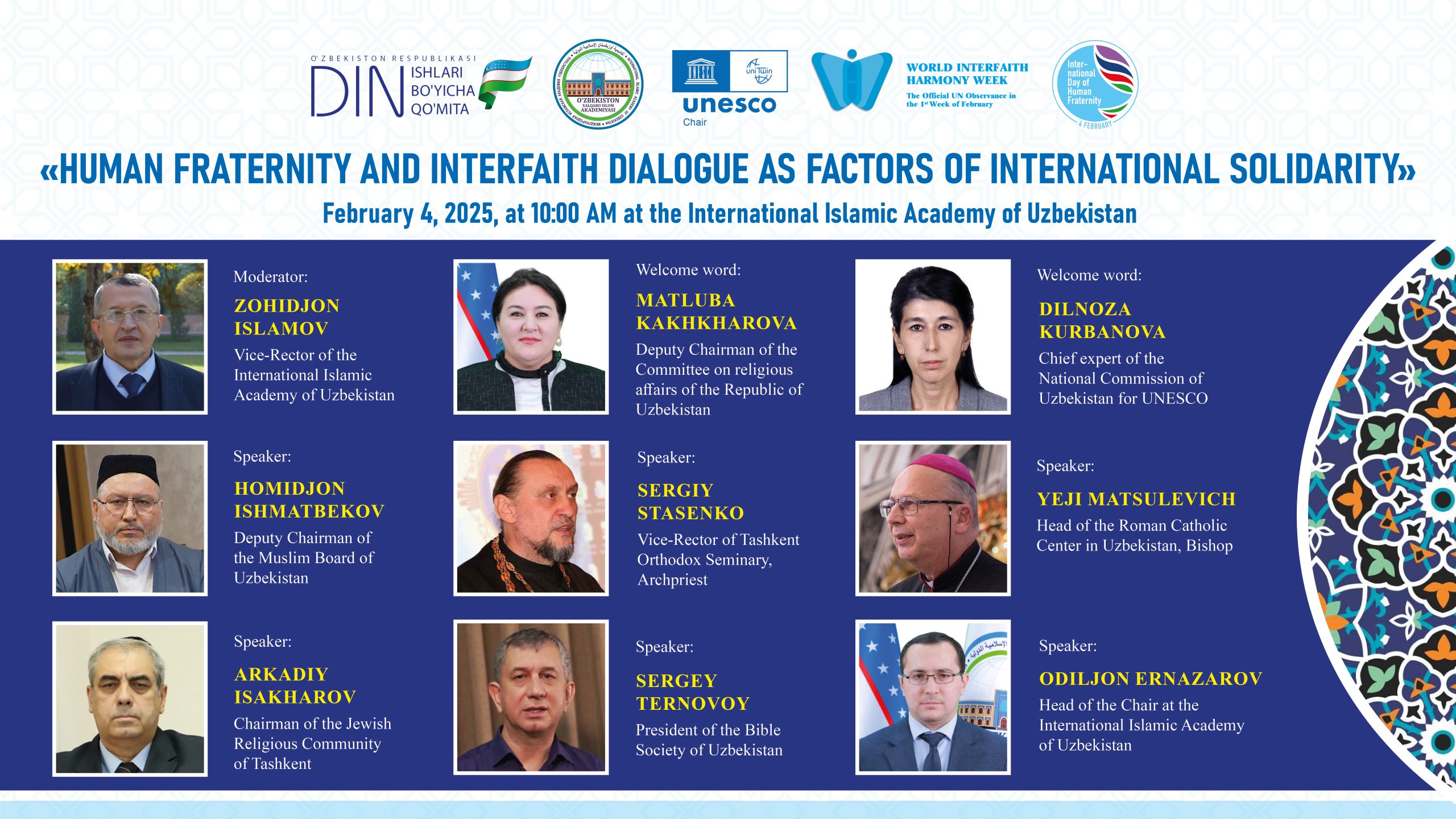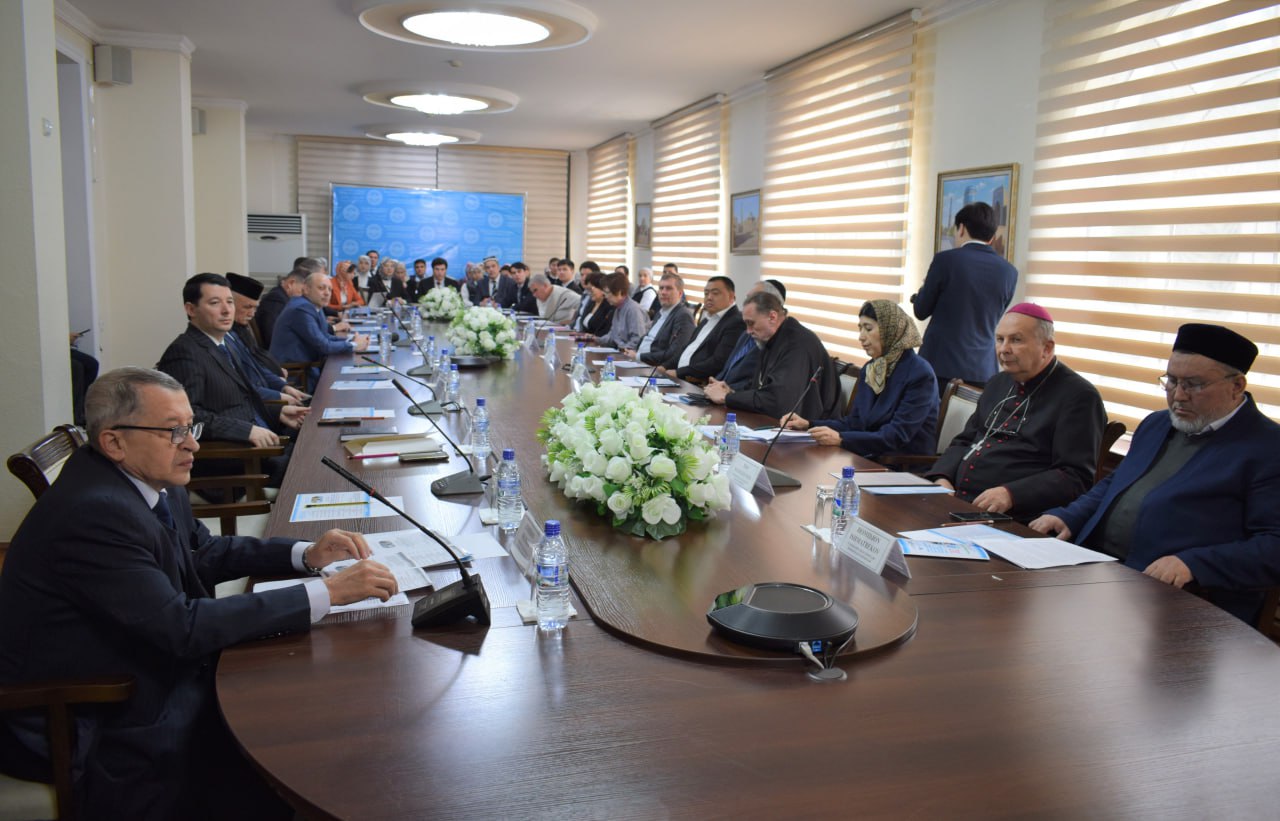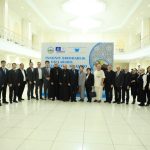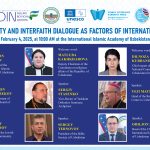Human Fraternity and Interfaith Dialogue – A Factor of International Solidarity


Report on the International Scientific-Practical Seminar “Human Fraternity and Interfaith Dialogue – A Factor of International Solidarity”
From February 4 to 8, 2025, the UNESCO Chair in Comparative Study of World Religions at the International Islamic Academy of Uzbekistan (IIAU) hosted a Week of Scientific, Cultural, Educational, and Sports Events in commemoration of World Interfaith Harmony Week. The overarching theme, “Human Fraternity and Interfaith Dialogue – A Factor of International Solidarity,” underscored the event’s commitment to fostering interfaith cooperation, religious tolerance, and global solidarity.
On February 4, 2025, the UNESCO Chair in Comparative Study of World Religions at the International Islamic Academy of Uzbekistan (IIAU) hosted the International Scientific-Practical Seminar titled “Human Fraternity and Interfaith Dialogue – A Factor of International Solidarity.” This seminar marked the first event of a week-long series dedicated to World Interfaith Harmony Week, held in Uzbekistan for the first time. The event convened prominent scholars, religious leaders, and representatives from international organizations to discuss the essential role of interfaith dialogue in fostering global peace and solidarity.
The seminar was moderated by Zohidjon Islamov, Vice-Rector of the IIAU, whose leadership ensured that the discussions aligned with the academy’s educational mission. The event commenced with welcome remarks from Matluba Kakharova, Deputy Chairman of the Committee on Religious Affairs of Uzbekistan, highlighting governmental support for interfaith initiatives. Dilnoza Kurbanaova, Chief Expert of the National Commission of Uzbekistan for UNESCO, reinforced the event’s international significance and UNESCO’s active involvement.
The seminar assembled a distinguished panel of religious leaders and scholars, representing various faith traditions and ensuring an inclusive, balanced, and in-depth exploration of interfaith harmony. Their contributions provided unique insights into the role of religious communities in fostering peace, mutual respect, and international solidarity.
Homidjon Ishmatbekov, Deputy Chairman of the Muslim Board of Uzbekistan, highlighted the foundational Islamic principles of peace, tolerance, and social cohesion. He underscored Islam’s emphasis on harmonious coexistence with diverse religious communities and stressed the responsibility of religious leaders in promoting ethical values and mutual understanding. His address reinforced the majority Muslim community’s engagement in interfaith initiatives and their commitment to strengthening unity within Uzbek society.
Sergiy Stasenko, Vice-Rector of the Tashkent Orthodox Seminary and Archpriest, provided an Orthodox Christian perspective, emphasizing the importance of religious dialogue in bridging historical divides. He spoke about the Orthodox Church’s contributions to interfaith cooperation and its role in upholding moral and spiritual values in an increasingly globalized world. His remarks reinforced the need for collaboration between different faith traditions to address contemporary challenges.
Yeji Matsulevich, Head of the Roman Catholic Center in Uzbekistan and Bishop, broadened the discussion by offering insights into the Catholic Church’s longstanding efforts in interreligious dialogue. He emphasized the importance of fraternity, compassion, and humanitarian cooperation, highlighting the Catholic Church’s global initiatives in fostering mutual respect and social solidarity. His remarks served to strengthen the seminar’s message of unity and peaceful coexistence.
Arkadiy Isakharov, Chairman of the Jewish Religious Community of Tashkent, contributed valuable perspectives on the historical and contemporary presence of Jewish communities in Uzbekistan. He spoke about the rich legacy of Jewish-Muslim-Christian relations in Central Asia and emphasized the need for continued interfaith initiatives to preserve and nurture these ties. His remarks reinforced the importance of inclusivity in religious discourse and community engagement.
Sergey Ternovoy, President of the Bible Society of Uzbekistan, addressed the role of sacred texts in fostering interreligious dialogue. He highlighted how scriptural teachings across different faith traditions emphasize love, respect, and understanding, serving as a basis for constructive engagement. His contribution underlined the role of interdenominational collaboration in promoting dialogue and spiritual enrichment across religious communities.
Odiljon Ernazarov, Head of the Chair at the International Islamic Academy of Uzbekistan, provided an academic perspective on interfaith dialogue. He emphasized the necessity of integrating religious studies into educational frameworks to promote interreligious understanding among future generations. His remarks highlighted the significance of scholarly research in shaping informed and respectful interfaith discourse.
The seminar centered on several critical themes, including:
The necessity of interfaith dialogue in addressing contemporary global challenges and fostering peaceful societies.
The role of religious teachings in promoting tolerance, mutual respect, and human fraternity.
The contribution of educational institutions in nurturing future generations of interfaith scholars and practitioners.
The impact of international collaboration, particularly through UNESCO’s initiatives, in advancing religious and cultural understanding.
A significant aspect of the event’s outreach strategy was the documentation and dissemination of key moments via multimedia platforms. The encouragement to “watch the video to see key moments from the seminar” reflects a deliberate effort to enhance transparency, accessibility, and global engagement. The use of targeted social media hashtags (#UNESCOChair, #InterfaithDialogue, #WorldInterfaithHarmonyWeek, #CultureOfPeace, #ReligiousTolerance, #UNITWIN, #Uzbekistan) indicates a strategic communication approach to amplify the message beyond academic and governmental circles.
As the first event of its kind in Uzbekistan dedicated to World Interfaith Harmony Week, this seminar set a significant precedent for future initiatives in interfaith dialogue. It reinforced Uzbekistan’s role as a hub for religious tolerance and cooperation, encouraging continued collaboration between governmental, academic, and religious institutions. The discussions and recommendations from the seminar will serve as a foundation for further research and policy development in interfaith engagement.
The International Scientific-Practical Seminar “Human Fraternity and Interfaith Dialogue – A Factor of International Solidarity” successfully launched a transformative week of events aimed at strengthening interfaith harmony. By bringing together diverse religious and academic voices, it underscored the importance of dialogue, education, and international cooperation in building a more tolerant and united world. The event’s success reflects Uzbekistan’s growing commitment to fostering global solidarity through interfaith initiatives.


